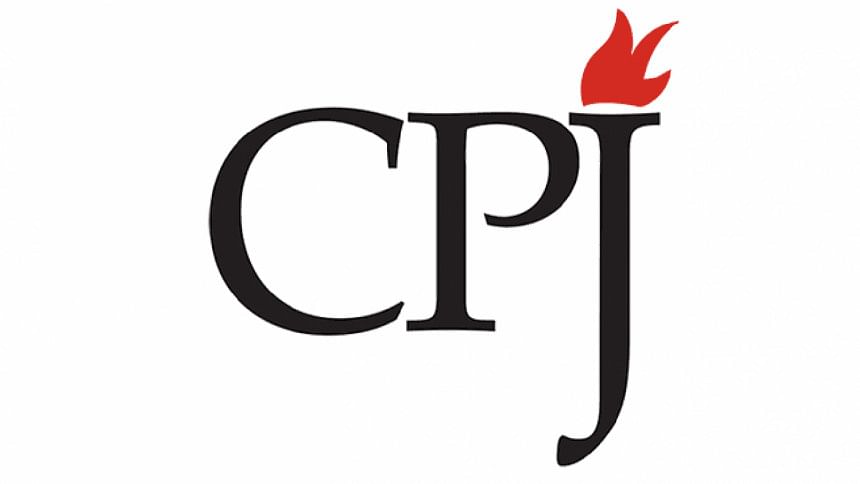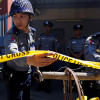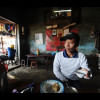Pakistan military 'quietly' stifles press with intimidation: CPJ

Pakistan's military is using fear and intimidation to stifle the media and undermine press freedom even as overall violence against reporters has fallen, the Committee to Protect Journalists (CPJ) said on Wednesday.
The press freedom group said the military had established "lines of control" to pressure the media and journalists who pushed back or were overly critical were attacked, threatened or arrested.
"The military has quietly, but effectively, set restrictions on reporting: from barring access to regions ... to encouraging self-censorship through direct and indirect methods of intimidation, including ... allegedly instigating violence against reporters," the CPJ said in a report.
The military routinely denies interference in politics or with the media. Its information wing could not be reached for comment by telephone nor did it respond to text messages seeking comment on the report.
Information Minister Fawad Chaudhry told Reuters no media complaints about intimidation had been lodged with his ministry but if they were, they would be investigated.
The CPJ spoke to various journalists and media organisations for its report, including Geo News, Pakistan's most popular television news channel.
In April, in the run-up to a general election, cable distributors stopped distributing Geo's programming, cutting off about 80 percent of households.
At the time, two sources at the broadcaster told Reuters the military had told it to refrain from reporting on various topics including alleged military involvement in the ouster of Prime Minister Nawaz Sharif.
The Supreme Court forced Sharif from office in July 2017 over his failure to declare some income.
The CPJ said while it was hard to document who made the order restricting Geo's distribution and for what reason, the broadcaster was known to have had disputes with the authorities.
"Geo News's clashes with authorities started well before April 2018 and exemplify the divide between some media houses and the military ... (and) the growing use of indirect tactics to impose censorship, and the rise of self-censorship," it said.
'INDIRECT WAYS'
Similarly, the English-language Dawn newspaper has seen its circulation blocked in some places, which the paper's editor said pointed to military intervention.
"They're clearly not happy with Dawn's policies, they want Dawn to stay away from certain subjects," editor Zaffar Abbas told Reuters, adding that non-compliance was met with circulation blockages and cuts in advertising by enterprises linked to the military.
"Some papers are unable to take those pressures."
The CPJ said military success against militants over the past few years had slashed the number of journalists being killed. But at the same time, several reporters had been attacked by unidentified men after publishing reports critical of the military.
"People in the military and sometimes in government have discovered that there are indirect ways of putting influence on the press," CPJ Asia coordinator Steven Butler, who wrote the report, told Reuters.
A handful of unexplained abduction and assault cases served as a reminder, he said.
"The threat of violence is there."

 For all latest news, follow The Daily Star's Google News channel.
For all latest news, follow The Daily Star's Google News channel. 







Comments